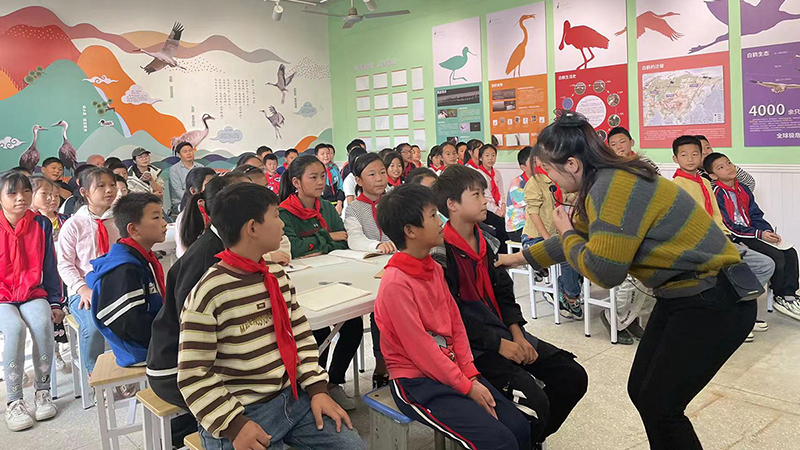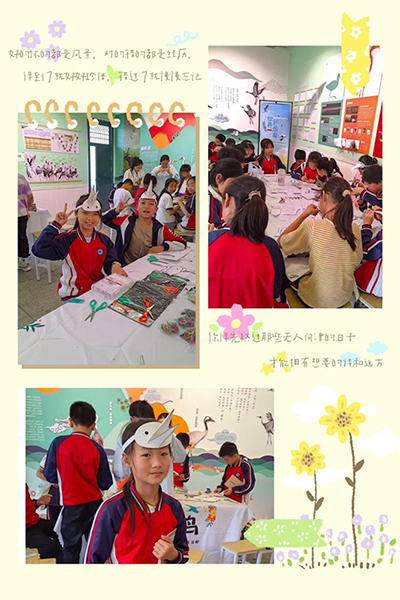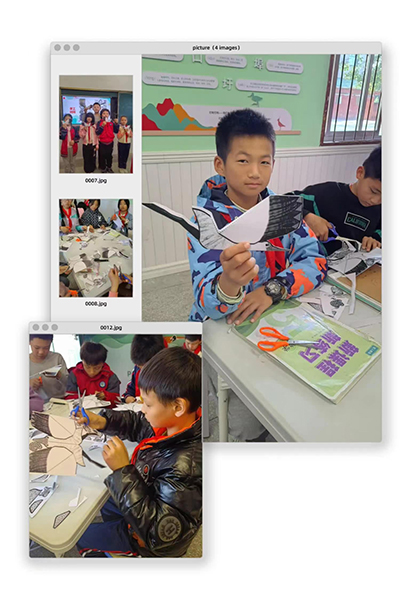“It is really a unique chance for rural children to attend an environmental education class,” says Ms. Tu Qianmin, a school teacher at Lusigang Primary School.
If you go with her to their school, you will find that the children love this new class. In a classroom renovated with crane photos and information, children concentrate on their handiwork. After cooperation and teamwork, a beautiful “bird nest” and several “eggs” are created.
This is a Crane School class!

Over the past five years, the International Crane Foundation’s China Program has explored this innovative approach to providing environmental education to local students – the Crane School. We select schools surrounding critical Siberian Crane habitats in Poyang Lake, China, and one crane-themed classroom is renovated in each school with a related one-year environmental education curriculum. We provide training to teachers so that they can teach the curriculum to students. Also, cooperating with local partners, we conduct summer or winter camps for students each semester to enhance their experience in nature.



We have developed a tailored curriculum for the whole year with the school teachers. It includes four parts: local culture, learning about cranes and birds, wetlands and ecosystems, and wildlife conservation. Each part includes several topics; for example, in learning about cranes and birds, we have six topics, including basic knowledge about birds, ecological groups of birds, breeding, migration, crane knowledge, and traditional crane culture in China. We have 16 topics for the whole year and eight for each semester.
Since the curriculum is taught by school teachers, a stable and capable teacher team is essential to the success of this project. We train teachers in all crane schools to ensure they understand the content and how to teach the course to students. We also bring them to the field to watch the birds and cranes. It’s another kind of training that can enhance their love for nature.

Since most of the schools we select are in rural areas, they have fewer students, a less experienced teacher team, and fewer opportunities for environmental education activities. We believe our project will give the children in such schools more opportunities and a greater impact.
I love this class because it’s fun! And I also learn about my hometown, the birds, the importance of nature and conservation. I would like to see the birds in the field!”
Crane School Student
We plan to build on this project’s success and scale up the model in China and the East Asia region. Four more Crane Schools will be set up this year, and the species will expand to include Black-necked Cranes.

Story by Cui Fangjie, Environmental Education Program Manager. Learn more about our work in East Asia here.
